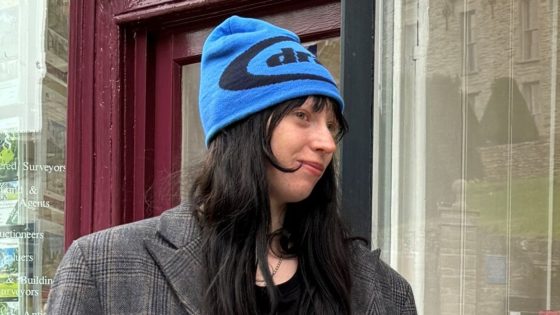The redemption tour began just as the Dodgers imagined it, back when they signed Shohei Ohtani to his $700-million contract in the offseason.
With one of the superstar’s thunderous, no-doubt, game-changing home run swings.
One inning into their postseason opener Saturday night, the Dodgers were having nightmare flashbacks to last year, facing yet another steep hole after yet another poor performance from their Game 1 starting pitcher.
The 53,028 towel-waving fans at Dodger Stadium had been silenced. In the visiting dugout, the San Diego Padres were riding an early jolt of momentum.
Read more: NLDS Game 1: Inning-by-inning recap
But then, in the kind of sequence that has eluded the Dodgers during their postseason failures of recent years, Ohtani came to the plate and, in his first career playoff game, immediately wiped the slate clean.
In the Dodgers’ 7-5 win in the opening game of this year’s National League Division Series, Ohtani hit a three-run home run to tie the game and erase the early deficit.
It gave the Dodgers life. It reenergized a sellout crowd at Chavez Ravine. And most importantly, it keyed what could be a crucial Game 1 victory, helping the Dodgers land an opening strike in this week’s best-of-five series.
The Dodgers didn’t take their first lead Saturday until the fourth inning, when Teoscar Hernández lined a go-ahead two-run single to center field. Their only run after that came after a careless throwing error by Manny Machado in the fifth.
But without Ohtani’s early blast, there might have been no mid-game plot twist.
After consecutive postseasons in which the Dodgers failed to battle back in playoff games, Ohtani made sure Saturday would be different.


Down 3-0 after a three-run Padres first inning in which Yoshinobu Yamamoto struggled with his command and hung a two-strike splitter to Machado for a two-run homer, the Dodgers’ second-inning rally began at the bottom of the lineup.
Will Smith worked a leadoff walk. Gavin Lux followed with a single. And with two on and two outs, the Padres had no choice but to pitch to Ohtani.
San Diego starter Dylan Cease started the at-bat carefully, throwing the first two pitches well out of the zone before Ohtani fouled a fastball off his knee. But after Ohtani dug back in, Cease challenged him with an elevated heater, similar to the one that induced a flyout in Ohtani’s first at-bat.
This time, the 30-year-old Japanese star was ready.
With a line-drive rocket that traveled 372 feet at almost 112 mph, he cleared the fence in front of the right-field pavilion, one big swing that tied the score 3-3.
The Padres briefly inched ahead again in the third, when Yamamoto concluded his three-inning start by yielding two more runs on an Xander Bogaerts double.
But in the bottom of the fourth, the Dodgers responded again, mounting a three-run rally to take a 6-5 lead.
Read more: After recent October scuffles, Dodgers aim to be ‘the ones attacking’ opposing pitchers
That inning began with a bunt single from Tommy Edman and a line-drive knock from Miguel Rojas. Ohtani broke his bat against left-handed reliever Adrian Morejon, but had enough behind it for a flare hit to center. Then, in a curious decision, the Padres decided to intentionally walk Mookie Betts in a 2-and-2 count, giving him first base after a wild pitch scored one run and allowed the other two runners to advance.
The hope, it seemed, was to induce a double-play from Freddie Freeman, who was limited by a sprained ankle — and didn’t get the green light to start the game until a few hours before the first pitch — yet still produced two hits and a stolen base.
Freeman did hit a grounder, but it was soft enough that first baseman Donovan Solano had no choice but to throw home for a force out.
With the inning extended, Hernández capitalized during the next at-bat, lining his two-run single past Padres outfielder Jackson Merrill in center to put the Dodgers ahead.
Six scoreless innings from the L.A. bullpen kept the lead from changing hands again.
Sign up for more Dodgers news with Dodgers Dugout. Delivered at the start of each series.
This story originally appeared in Los Angeles Times.
Source Agencies


